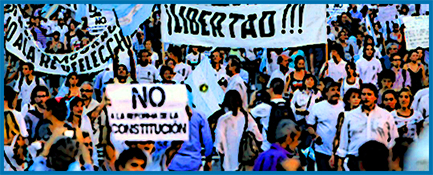Silverstein Forum, Stiteler Hall First Floor (Accessibility)

Co-sponsored by the Penn Latin American and Latino Studies Program.
Discussant: Randall Collins, Penn Sociology.
DISCUSSION OF VENEZUELA DURING THE FIFTEEN YEARS OF CHAVISMO has been dominated pluralist and neo- Marxist perspectives. Each of these “partial conflict theories” provides incisive analytic tools but proves myopic in portraying the breadth and complexity of the conflict. This in turn circumscribes their critical edge. Pluralist perspectives incisively describe the way Chavismo has reduced civil and political liberties and concentrated power, but miss the issues that explain the rise and staying power of Latin America’s new left governments. Neo-Marxist perspectives incisively describe the way Chavismo has confronted national and international capital, and promoted a process of economic, social and cultural democratization. However, they pull their punches when it comes to Chavismo’s concentration of power. Here I propose a “full conflict theory” based on the Weberian ideas of multiple, conjunctural causation. Using the work of Michael Mann I analyze post-neoliberal Venezuela in terms of the power networks that support Chavismo versus those that support its opposition. These networks are based on multiple combinations of four sources of ideological power: ideological, economic, political and military. I look at the unincorporated voting population in terms of their grounds for security. This full conflict theory not only provides a more satisfying description of the conflict, it provides grounds for normative critique, keying in on the performance and inherent monopolistic tendencies of power networks. I end with suggestions that this framework could be useful for understanding the conflicts generated by post-liberal governing projects in the region.
David Smilde is a senior fellow at WOLA (Washington Office on Latin America) specializing in Venezuela. He is the Charles A. and Leo M. Favrot Professor of Human Relations at Tulane University and moderates the WOLA Venezuela Politics and Human Rights blog. His research focuses on social movements, human rights and culture in Venezuela. He is currently working on a book manuscript called Venezuela’s Transition to Socialism: Politics and Human Rights under Chávez, 2008-2012. Professor Smilde’s edited volume (with Daniel Hellinger) Venezuela’s Bolivarian Democracy: Participation, Politics and Culture under Chávez (2011) looks at forms of citizen participation in contemporary Venezuela. His book (with Margarita Lopez Maya and Keta Stephany) Protesta y Cultura en Venezuela: Los Marcos de Acción Colectiva en 1999 (2002) looks at Street protest in the first year of the Chávez government.
| Attachment | Size |
|---|---|
| 336.15 KB |

 The Andrea Mitchell Center for the Study of Democracy
The Andrea Mitchell Center for the Study of Democracy